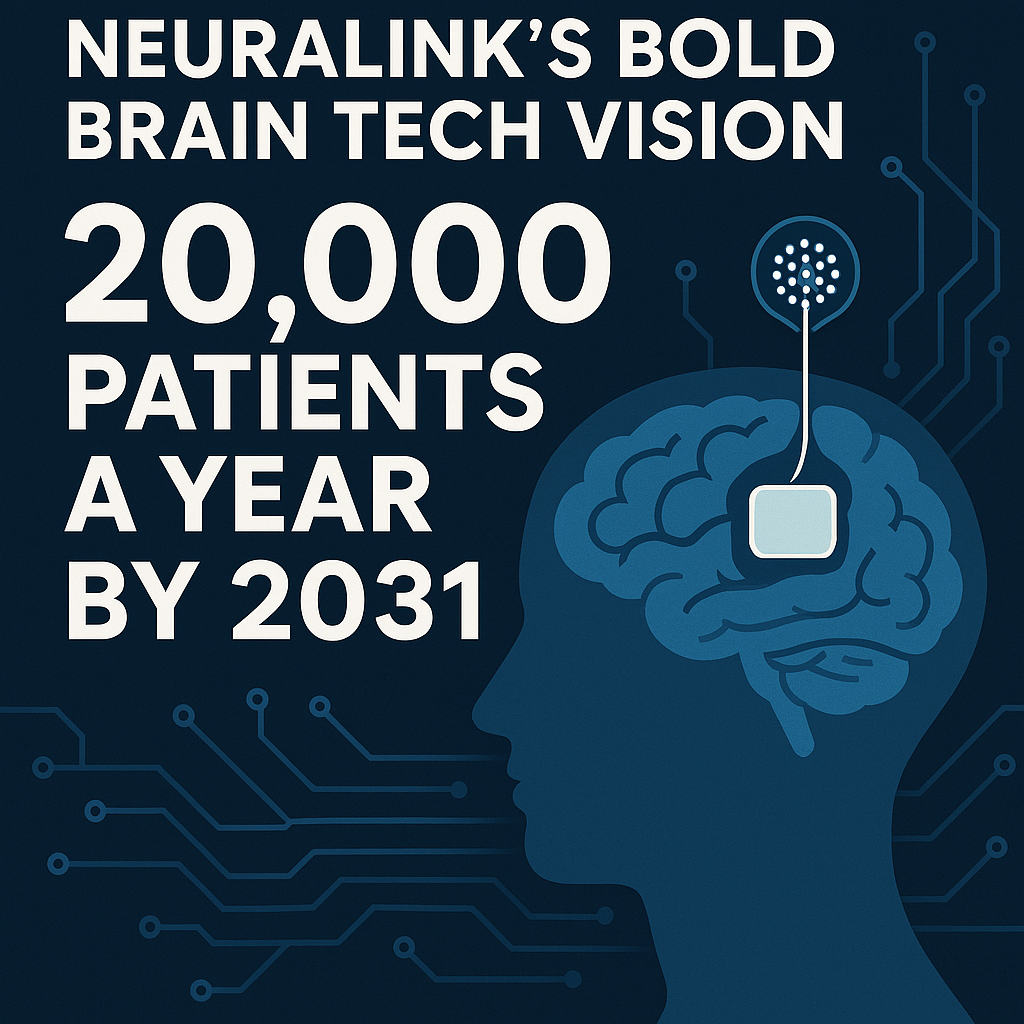
Elon Musk’s brain-computer interface company, Neuralink Corp., is getting ready for a huge leap into the future of neurotechnology. According to company reports, Neuralink expects to implant its brain chips in 20,000 people annually by 2031, which would potentially generate over $1 billion in yearly revenue. This is a bold ramp-up in its mission to treat neurological disorders and unlock direct communication between humans and machines.
Over the next six years, Neuralink plans to establish five clinics and offer three versions of its implant:
· Telepathy: Designed to enable direct communication between the brain and external devices, such as computers or smartphones.
· Blindsight: Aimed at restoring vision for people who are blind.
· Deep: Built to treat neurological conditions like tremors and Parkinson’s disease.
As part of the early clinical trials, paralyzed patients have used Neuralink devices to control computers with their thoughts; browsing the web, playing video games, and even editing videos. One patient, Audrey Crews, made headlines as the first woman to receive the implant. Paralyzed since the age of 16, she stunned social media by posting a photo of her name, written on a screen using only her thoughts. “I tried writing my name for the first time in 20 years. I’m working on it. Lol #Neuralink,” she shared on X (formerly Twitter).
Neuralink is setting an ambitious pace. The company projects that by 2029, it will have regulatory approval in the U.S. for its flagship Telepathy device, performing 2,000 surgeries per year and generating at least $100 million in revenue. A year later, it will launch Blindsight, scaling up to 10,000 surgeries annually and bringing in more than $500 million. The documents assume an average reimbursement of $50,000 per procedure.
So far, fewer than ten people have been reported to have received Neuralink implants, with no current patients using them to restore vision or treat Parkinson’s. Yet, the company’s ambitions are clear and vast.
Despite the buzz, no brain-computer interface (BCI) has yet been approved by the FDA for permanent human use. Neuralink is not alone in the race: multiple startups are building similar implants that either stimulate or record brain activity, vying for a breakthrough in the field.
Neuralink has raised $1.3 billion from investors and is currently valued at $9 billion, according to Pitchbook. As the competition heats up, Musk’s lofty goal remains the same: to fuse humans with machines and rewire the future of mind and medicine.
Diana Macdonald, Editor
markitgirlz@shaw.ca
For Brainnovation News
We’re bridging the gap between cutting-edge neuroscience & everyday access, bringing elite brain health tools to all. From athletes to underserved communities, we make performance and well-being accessible, one brain at a time.
Tanja Yardley-Publisher
Tags: Neuralink Brain Chip, Brain Computer Interface, Telepathy Implant Device, Neuralink Clinical Trials, Elon Musk, Neurotechnology,


